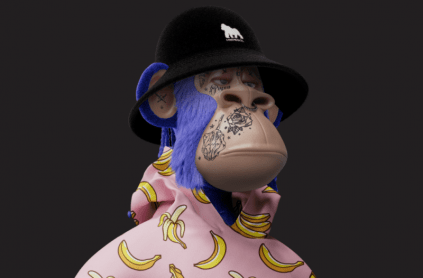NON FUNGIBLE TOKENS (“NFTS”) GAMBLING?
WHAT ARE NFTS?
NFT is an abbreviation for Non-Fungible Token. In this context, a token is an asset created on a blockchain that represents ownership of something, or a right to something. ‘Non-fungible’ means that the unit in question cannot be stacked or combined.
For example: 1 Australian dollar can be combined to create Australian dollars thus the dollar is fungible in nature. This, however, can’t be said for something like diamonds: diamonds are not fungible because each one is always distinct in nature, and so you will never have 2 of the exact same diamond – you’re thus not able to combine them in a fungible manner.
An NFT itself allows real ownership of data. The token itself is a representation of data which an individual can own, trade, and sell without hinderance or interference from a third party.
WHAT IS THE CONNECTION BETWEEN GAMBLING AND NFTS?
A popular NFT project launch consists of releasing a collection of NFTs and hiding a couple of ultra-rare NFTs within the bunch, and then, of course, advertising that there is a chance to attain such an ultra-rare NFT. Alternatively, projects may release a substantial reward of significant value (such as a Tesla vehicle) for any individual that mints a particular NFT.
Thus, in essence, when people mint NFTs, some lucky individuals will have the opportunity to retain a significant amount of value from acquiring the high rarity NFT and selling it.
AUSTRALIAN LAW
Pursuant to section 4 of the Interactive Gambling Act 2001 (Cth), a gambling service means a service for the conduct of a game where:
- The game is played for money or anything else of value; and
- The game is a game of chance or a game of mixed chance and skill; and
- A customer of the service gives or agrees to give consideration to play or enter the game.
The first consideration is whether NFT minting can be considered a “game”. Section 4 states that a game includes an electronic game. Taking the dictionary meaning of a ‘game’, there is a high possibility, NFT Minting would be considered a “game”.
- As per popular market sentiment, people generally mint an NFT to make a profit and/or to receive a valuable NFT which can generally be sold on a secondary market quite easily for cryptocurrency, which has real world monetary value.
- When minting, it is completely up to chance as to whether or not a participant will receive an NFT of higher rarity and value.
- To mint an NFT, an individual is required to pay a fee to mint (consideration).
CONCLUSION
It seems as though the popular method of minting an NFT collection and hiding a couple of rare ones within could be considered to be an act of gambling under Australian law. As per the prior analysis, this method triggers all criteria to be considered a gambling service under the Interactive Gambling Act 2001.
However, there are many other schemes that also trigger the criteria of being a gambling service that have been operating without consequence, including EA’s FIFA ultimate team packs and Counter-Strike loot boxes.
There have not been any formal rulings relating to NFTs and gambling in Australia, and regulators have not taken action against projects that operate in this manner; however, it will always be beneficial to remain prudent of such things.
If seeking to release NFTs via the above-mentioned method, there are ways through which you may structure the issuance to avoid most risks relating to gambling laws.
